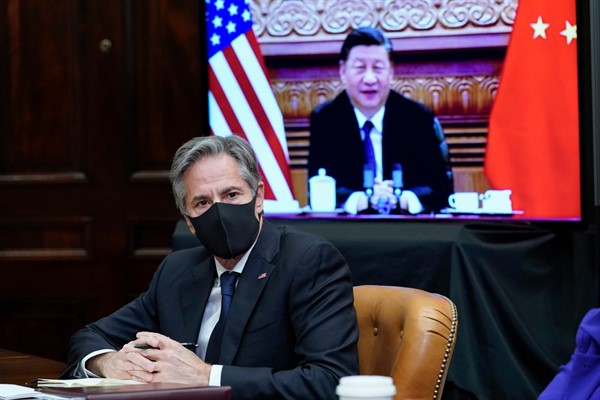Much has already been said about the recent heightening of U.S.-China tensions and its potential fallout. What gets less attention is how the U.S. and China themselves perceive the status of their relationship, and how that affects their plans for the future. An analysis of prevailing elite opinion in the U.S. and China—starting with reactions to the Nov. 16 virtual summit between U.S. President Joe Biden and Chinese leader Xi Jinping—can shed light on how each side understands the root causes of the current competition, and why they believe they can overcome them.
For the United States, the rivalry is driven by China’s challenge to U.S. power and leadership, as well as its belief that Beijing is trying to alter the international order for its own benefit. For Beijing, it is driven by the United States’ continued “hegemonic” pretensions amid what Chinese elites see as its inevitable decline.
While both Washington and Beijing believe that their relationship will be primarily defined by competition rather than cooperation for the foreseeable future, there are nonetheless indications that both states are hoping to protect themselves by establishing new “guardrails” to provide strategic stability, even as they continue to compete with one another. But doing so will be difficult.

